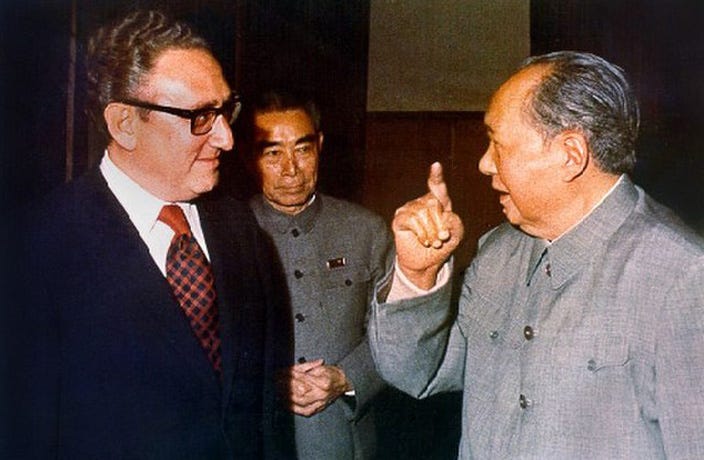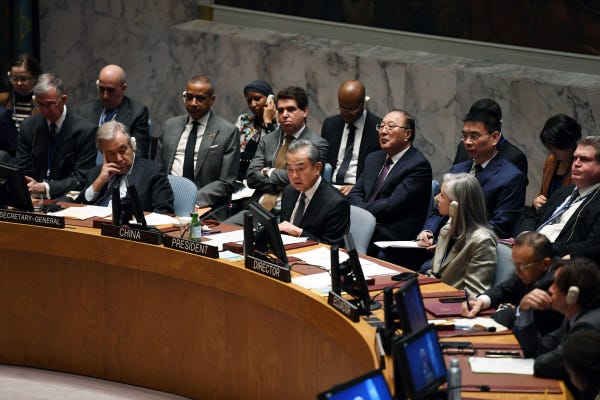Former US SecState Henry Kissinger, the Realpolitik Practicer who Help to Shape the Sino-US Relations, Died at 100
Former US SecState Henry Kissinger, the Realpolitik Practicer who Help to Shape the Sino-US Relations, Died at 100

Henry Kissinger, the former US Secretary of State and a towering figure in international diplomacy, has passed away at age 100. The news marks the end of an era for a man who played a pivotal role in shaping American foreign policy in the late 20th century.
Kissinger played a crucial role in many significant international events, including the establishment of US diplomatic relations with China, the negotiation of the Paris Peace Accords that helped end the Vietnam War, and the initiation of détente with the Soviet Union.
Henry Kissinger, as United States National Security Advisor and later as Secretary of State during the Nixon administration, made a secret trip to Beijing to meet with Chinese Premier Zhou Enlai in 1971, paved way for President Richard Nixon’s historic visit to China the following year.
Kissinger maintained a role as an informal diplomat and consultant on foreign policy, including U.S.-China relations, long after he left public office. He visited China numerous times in the decades after he initially helped open diplomatic relations between the U.S. and China, meeting with Chinese leaders and giving speeches on international relations and diplomacy.
Henry Kissinger’s last trip to China was on July 18th, in which he met with the Chinese Minister of Defense and engaged in discussions around regional security, military cooperation, and the evolving geopolitical landscape.
Many Chinese view Kissinger as a key architect of this diplomatic breakthrough and appreciate his pragmatic approach to international politics. His book “On China,” which outlines his perspective on China’s geopolitical strategy and history, has been widely read in the country.
Gaza War: China Leads Efforts to Promote Ceasefire and Two-State Solution

On November 29, The United Nations Security Council convened a high-level meeting to address the long-standing Israeli-Palestinian conflict.
Led by China in its role as the current rotating presidency, the meeting aimed to foster an enduring ceasefire between the two nations. Attended by foreign ministers and representatives from nearly 20 countries, including Palestine, Qatar, Jordan, Saudi Arabia, and Egypt, as well as all Security Council members, the discussions sought to revive efforts towards a viable solution.
Chinese Foreign Minister Wang Yi stressed the urgent need for the UN to assume a more active role in supervising humanitarian assistance to Gaza and called for the full implementation of Resolution 2712.
The Chinese Ministry of Foreign Affairs also released the Position Paper of the People’s Republic of China on Resolving the Palestinian-Israeli Conflict, outlining five key principles aimed at advancing the peace process. These included advocating for a comprehensive ceasefire, prioritizing the protection of civilians, ensuring robust humanitarian aid provisions, intensifying diplomatic mediation efforts, and ultimately achieving a political resolution through the implementation of the “two-state solution.”
Minister Wang Yi underscored the prolonged neglect of the Palestinian people’s rights to statehood, survival, and return, which lies at the core of the Israeli-Palestinian conflict. He emphasized that the fairness and justice of the “two-state solution” is irreplaceable in resolving the Palestinian question.
COP 28: China to Work Together with US, Urge Japan to Act Responsibly on Fukushima Wastewater

On November 29, John Kerry, the US Special Presidential Envoy for Climate, stated the United States will work with China to make the United Nations climate negotiations (COP28) that begin in the United Arab Emirates a success.
Meanwhile, on November 28, the Chinese Foreign Ministry issued a call to Japan, urging the country to address the demands of stakeholders seeking compensation for the release of nuclear-contaminated wastewater from the Fukushima Daiichi Nuclear Power Plant into the Pacific Ocean.
Wang Wenbin, the spokesperson for the Chinese Foreign Ministry, emphasized that Japan should not only take the concerns of its own but also recognize the significant apprehensions expressed by the international community, particularly neighbouring countries who share common concerns over this issue.
The marine environment and nuclear pollution management have always been of paramount concern for countries worldwide, especially Pacific Island nations. Earlier in November, Mark Brown, the prime minister of the Cook Islands and chair of the Pacific Islands Forum, cited their concern on Australia’s AUKUS submarine deal and Japan’s discharge of treated Fukushima wastewater.
